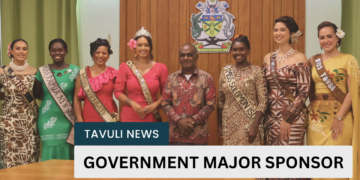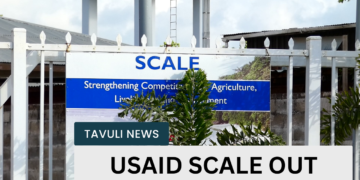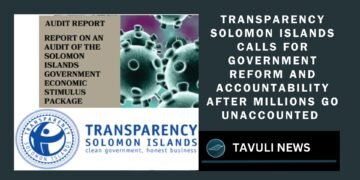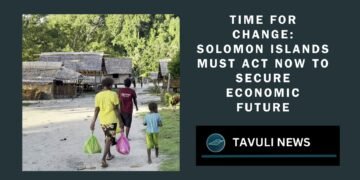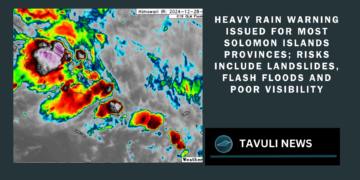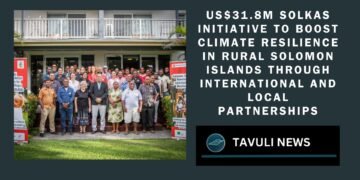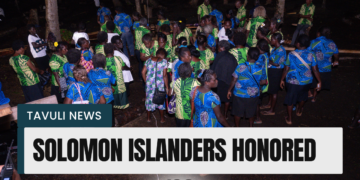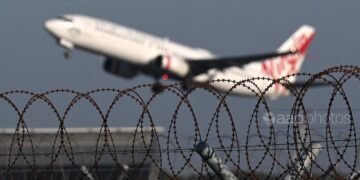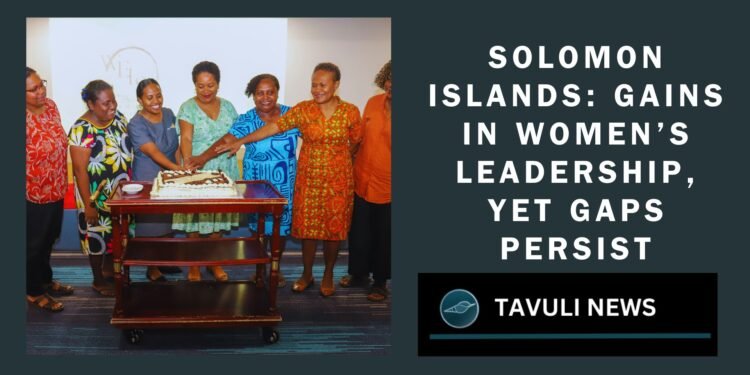ADB’s Leadership Matters 2024 Report Shows Promising Growth, but Challenges Remain.
The proportion of women in business leadership roles in the Solomon Islands is increasing, yet they remain underrepresented compared to their male counterparts. This is according to a report recently published by the Asian Development Bank’s (ADB) Pacific Private Sector Development Initiative (PSDI).
The report, Leadership Matters 2024: Benchmarking Women in Business Leadership in the Pacific, builds on the baseline established in the 2021 Leadership Matters report, tracking advancements in women’s representation as board directors, board chairs, deputy board chairs, and chief executive officers across 14 Pacific countries.
“The new Leadership Matters report finds that women’s representation in business leadership in the Solomon Islands has risen since 2021 across all measures but remains mostly below regional averages,” said Sarah Boxall, PSDI Economic Empowerment of Women Expert and author of the report. “However, the overall growth in women’s representation is a promising trend toward more inclusive and diverse corporate cultures in the Solomon Islands, driven by a mix of organizational policies, greater family and community support for women’s leadership aspirations, and a cohort of talented and ambitious women who are rising through the ranks and supporting others to do the same.”
According to the report, the average proportion of women directors in the Pacific increased from 21% in 2021 to 26% in 2024, surpassing the 2023 global average of 23%. Additionally, the average proportion of women chief executive officers (CEOs) in the Pacific rose from 13% to 20%, significantly above the global average of 6%. In the Solomon Islands specifically, the proportion of women directors increased from 11% to 21%, while the proportion of women CEOs rose from 7% to 24%.
The Cook Islands, Kiribati, Samoa, and Tuvalu have higher proportions of women directors and CEOs compared to most countries in the region. Conversely, Fiji and Papua New Guinea are the only countries that have not met or exceeded the regional average in any measure.
“A myriad of global and local influences and social norms continue to shape Pacific women’s aspirations and opportunities for leadership, and entrenched gender roles—particularly those related to caregiving responsibilities—remain a significant challenge,” Ms. Boxall noted. “While we celebrate these improvements, many of the gains since 2021 have been modest and uneven across countries, sectors, and types of organizations. We must also recognize the persistent gender disparities these figures reveal and continue to strive for equal representation in leadership, both globally and in the Pacific.”
Despite the recorded growth in the Solomon Islands, men still hold approximately nine out of every ten board chair roles, and 45% of boards have no women directors at all. Across the Pacific, men occupy around three out of every four board director positions, nine out of every ten board chair positions, and four out of every five CEO positions. Nearly one-quarter (24%) of all Pacific boards still lack women directors.
The report draws on data from 397 organizations across ADB’s 14 Pacific developing member countries (DMCs) and insights from over 350 Pacific business leaders gathered through surveys and in-depth interviews.
PSDI is an ADB technical assistance program undertaken in partnership with the governments of Australia and New Zealand. It supports ADB’s 14 Pacific DMCs in improving the enabling environment for business and achieving inclusive, private sector-led economic growth, including reforms designed to enhance the economic empowerment of women.
Source: PSDI


